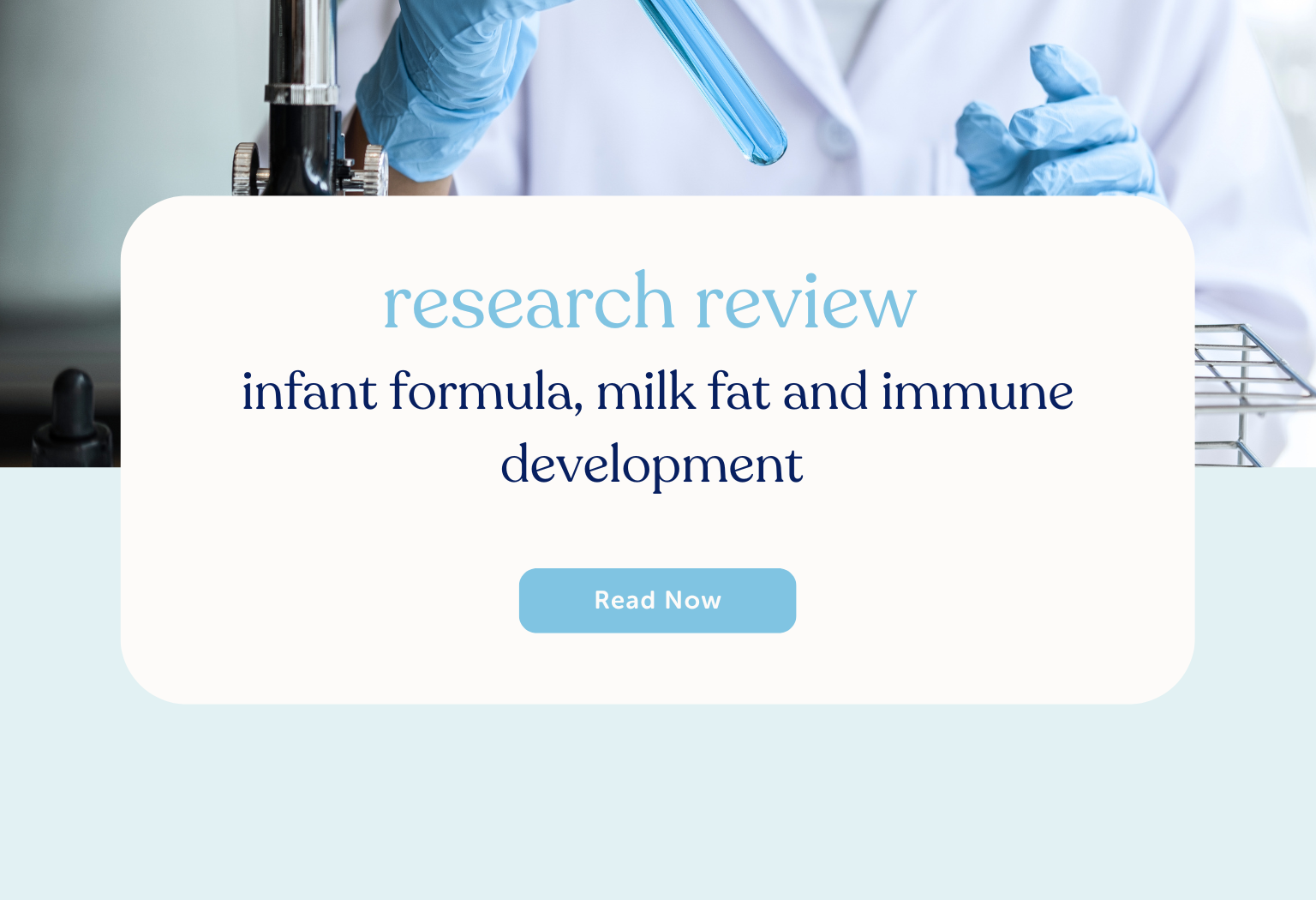This research summary is based on “Infant Formula Based on Milk Fat Affects Immune Development in Both Normal Birthweight and Fetal Growth Restricted Neonatal Piglets” by Bæk et al. 2021. This study explores the effects of different types of fats in infant formula on the immune system development of neonatal piglets, which can provide insights into infant nutrition.
Intrauterine Growth Restriction (IUGR)
Intrauterine growth restriction, or IUGR, occurs when a fetus experiences reduced growth in the womb due to various factors, such as chronic diseases or infections in the mother or issues with umbilical cord function. Infants born with IUGR often show signs of malnutrition and stunted growth, making adequate nutritional support crucial in their early weeks of life. These infants are also at a higher risk of postnatal infections, which may be due to abnormal immune function.
Importance of Breast Milk and Formula Limitations
While the optimal diet for all infants is their mother’s milk, this is not always feasible, especially in the first few weeks. Infant formula, typically made from vegetable oils, provides an alternative. However, vegetable oils differ significantly from the fat composition of human breast milk and lack the milk fat globule membrane (MFGM), which supports the immune system in infants. Cow’s milk-based infant formula can address some of these limitations, as its fat composition, including bovine MFGM, is more similar to human breast milk.
Study Overview
This study used an animal model involving fetal growth restricted pigs to compare the effects of cow’s milk fat versus vegetable oil fat on immune system development. Both normal and low birth weight newborn pigs were included in the study.
Study Findings
The authors discovered that pigs fed with cow’s milk-based formula exhibited slightly higher rates of immune cell activity at 23/24 days old in both normal and low birth weight pigs. When exposed to a bacterial toxin to test immune response, there were slightly lower levels of some, but not all, immune system blood markers in pigs fed cow’s milk formula. Notably, there was little difference in how growth-restricted pigs and normal birth weight pigs reacted to the different formulas, suggesting that milk-fat feeding does not differentially affect growth-restricted pigs.
Interpretation of Results
Interpreting these results is challenging due to the wide range of immune system markers tested and the minimal differences observed between groups. The few markers that did show changes might have occurred by chance or could indicate a more complex mechanism that is not fully understood. The effects of milk fat on the infant immune system may be mediated through changes in the gut microbiome rather than direct effects on immune cells. Additionally, the use of pigs as an animal model limits the direct applicability of these results to humans.
Conclusion
In conclusion, the influence of cow’s milk fat on the developing immune system in newborn pigs appeared to be small in this study. It is not clear how or if this small effect could impact the response to infections in infants. Therefore, it remains uncertain whether cow’s milk fat significantly impacts the development of the immune system in neonates, both in normal birth weight infants and those with low birth weight due to intrauterine growth restriction.
Reference
Kristensen S., Salihu H.M., Keith L.G., Kirby R.S., Fowler K.B., Pass M.A.B. SGA subtypes and mortality risk among singleton births. Early Hum. Dev. 2007;83:99–105. doi: 10.1016/j.earlhumdev.2006.05.008.

